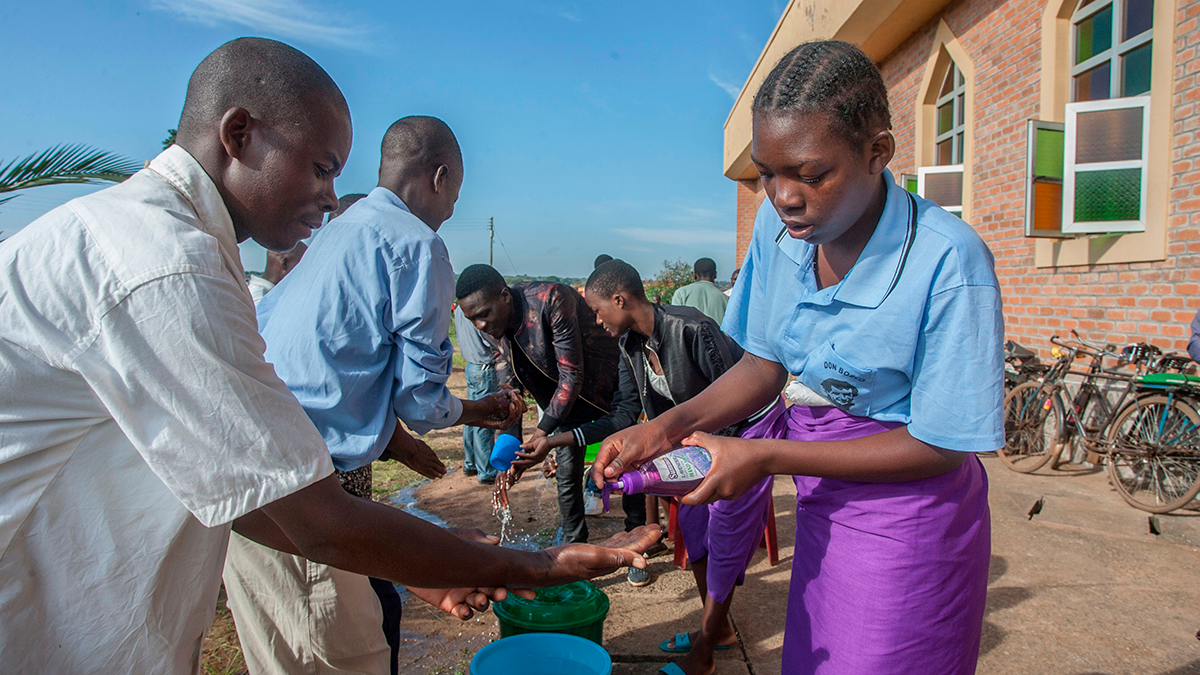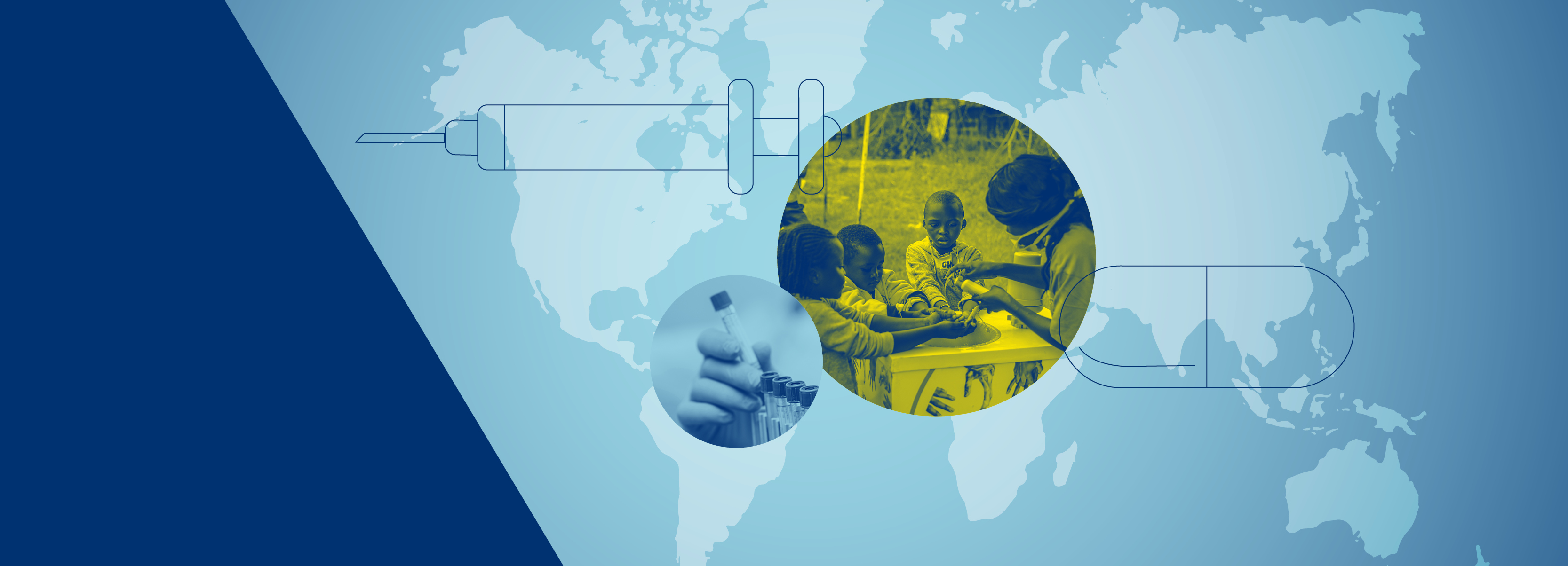Equitable access to vaccines, tests and treatments for Covid-19
Any Covid-19 vaccines, tests and treatments developed should benefit the whole world. We are working with the ACT-Accelerator and other international partners to make sure that happens.
Any Covid-19 vaccines, tests and treatments developed should benefit the whole world. We are working with the ACT-Accelerator and other international partners to make sure that happens.
Equitable access to Covid-19 tests, treatments and vaccines means that:
- they are available everywhere, regardless of where they have been developed or who funded them
- appropriate options exist for all healthcare settings, whether in low- or high-income countries
- safe and effective options reach all groups of people, regardless of race, age or other demographics
- they are affordable to poor and rich countries alike, not only to those who can pay the most.
People who are most at risk of getting infected with coronavirus or getting severely ill need tests, treatments and vaccines the most, and should get access first. These include healthcare workers, the elderly and people with co-morbidities, and people that are unable to practice social distancing and regular handwashing, for example if they live in overcrowded refugee camps or who have limited access to running water.
No one is protected against Covid-19 unless everyone is.
Equitable access to Covid-19 tests, treatments and vaccines in all countries will lead to the pandemic ending sooner, many lives saved, a return of international mobility and trade, and a start to economic recovery.
The $28.1 billion investment still needed to develop these lifesaving tools could be recouped in 36 hours once international mobility and trade are restored.
This investment is less than 1% of what G20 countries have already unlocked to support businesses and national economies.

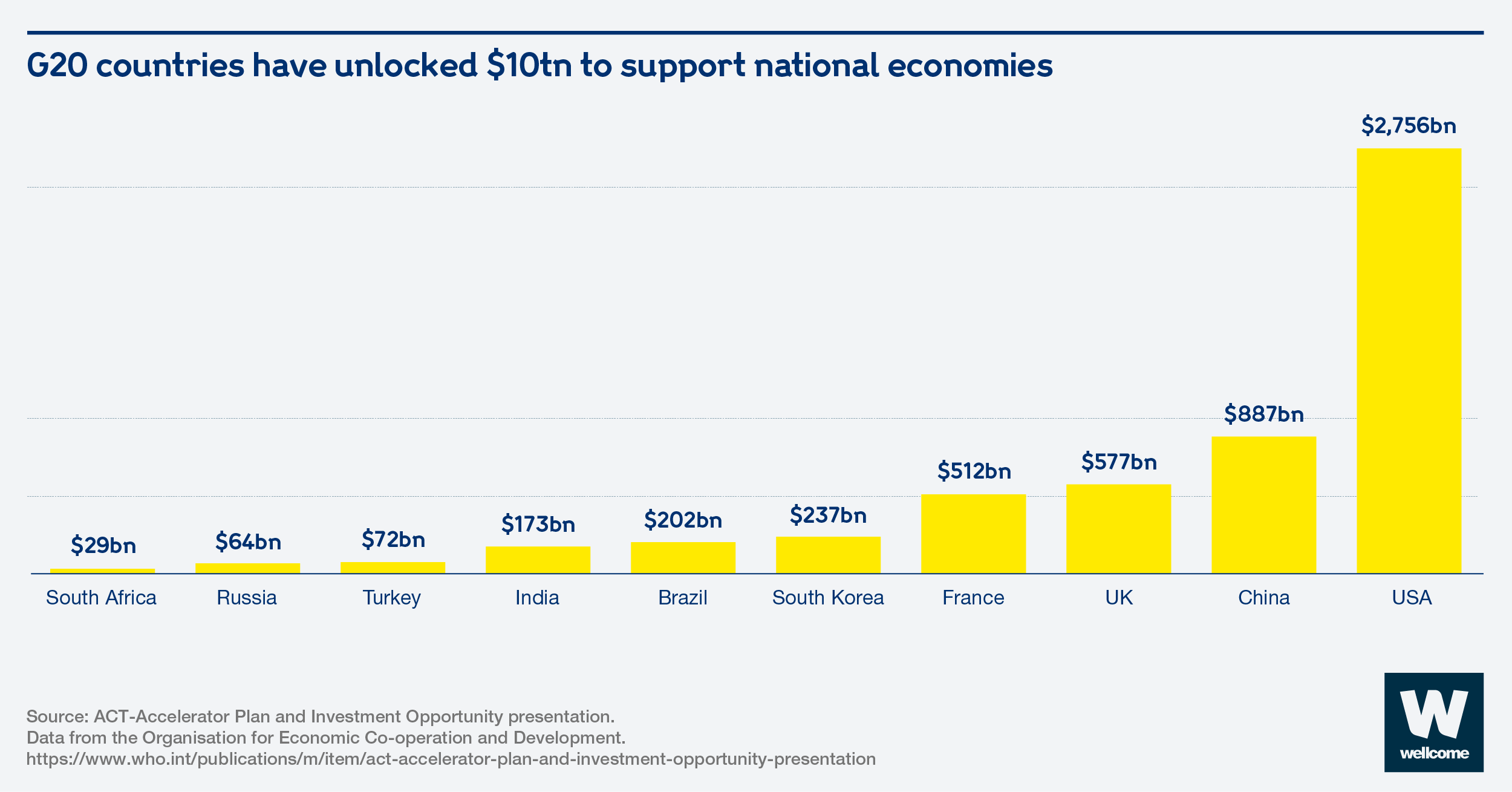
It is in every country’s best interest to work together to bring the pandemic to an end. Global solidarity – and global investment – are essential.
This is also what the public wants. Wellcome polling of more than 6,000 adults in the UK, the USA, Germany and France shows strong public support for making sure that any new coronavirus treatments and vaccines are first made available to those who need them most.
Governments, international financing institutes, the private sector and philanthropies must invest in research and development of Covid-19 tools, and make sure they are distributed fairly.
There are three main things they can do.
1. Invest in the Access to COVID-19 Tools (ACT) Accelerator
This is a ground-breaking global collaboration that brings together governments, scientists, businesses, civil society, philanthropists and international health organisations. It needs a total investment of $33.2 billion to help provide:
- 2 billion vaccine doses globally by the end of 2021
- 245 million treatment courses in low- and middle-income countries by mid-2021
- 500 million tests in low- and middle-income countries by mid-2021.
The ACT-Accelerator is an end-to-end global solution to the Covid-19 pandemic. It aims to develop, scale and enable equitable global access to tests, treatments and vaccines, and so far has the largest portfolio of Covid-19 tools in the world.
By investing in the ACT-Accelerator, governments will have a better chance of accessing the successful tools.
2. Commit to and take action to ensure equitable access
Once new treatments, tests and vaccines are licensed and approved, supplies will be limited. Governments should not buy or hoard more than they need, to make sure that these lifesaving tools are available and affordable to all countries.
Governments and pharmaceutical companies should be transparent about any bilateral deals they make – particularly about if and how those deals will support access in low- and middle-income countries.
Recognising the severity of this crisis, some companies have already committed to providing vaccine doses on a non-profit basis during the pandemic. Other companies producing vaccines, treatments and diagnostics should follow this example where possible and, at minimum, negotiate pricing mechanisms that guarantee affordable doses to all those affected, regardless of their ability to pay. This may require donor support to ensure affordability.
3. Follow the WHO allocation framework
The World Health Organization (WHO) is developing principles, frameworks and mechanisms to make sure that there is equitable allocation of Covid-19 tools.
Governments should follow these when planning, buying and delivering vaccines, treatments and tests.
Equitable allocation would be planned through COVAX, a global initiative co-led by the WHO, the Coalition for Epidemic Preparedness Innovations (CEPI) and Gavi, the Vaccine Alliance. Once a vaccine is shown to be safe and effective, and approved for use, all countries signed up to COVAX would get access:
- initially, they will receive enough doses to cover 20 per cent of their population – so that people who are most at risk can be vaccinated first.
- in subsequent phases, countries will receive more doses so they can deliver the vaccine to all who might benefit.
The total investment needed for the ACT-Accelerator is $33.2 billion. This will cover:
- Vaccines: $11.1 billion for CEPI, the Coalition for Epidemic Preparedness Innovations, and GAVI, the Vaccine Alliance, of which $1 billion is needed immediately
- Therapeutics: $6.6 billion for the Therapeutics Accelerator and Unitaid, of which $4 billion is needed immediately
- Diagnostics: $6 billion for FIND, the Foundation for Innovative New Diagnostics, and the Global Fund, of which $1.1 billion is needed immediately
- Health systems: $9.5 billion for the World Bank, the WHO and the Global Fund, of which $1.7 billion is needed immediately.
So far, only $5.1 billion has been pledged, leaving a gap of $28.1 billion. The Economist Intelligence Unit’s COVID-19 Health Funding Tracker is tracking money pledged and disbursed to the ACT-Accelerator partners.

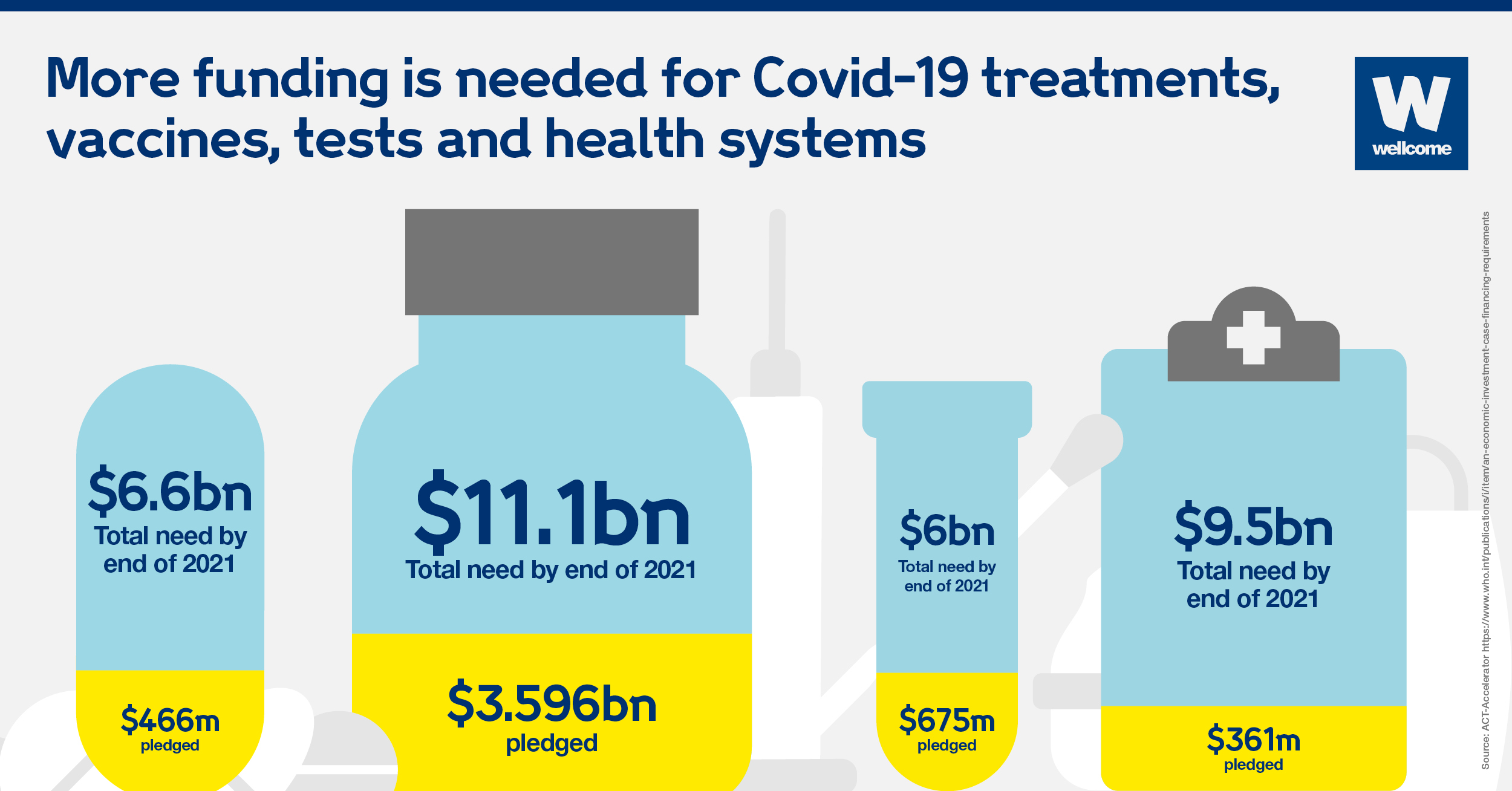

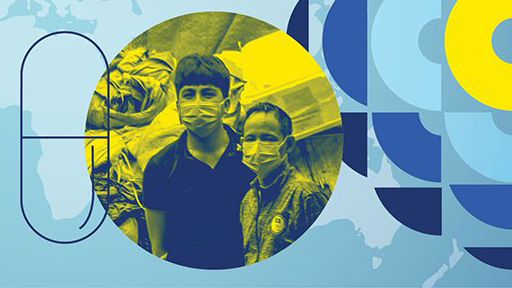

Parishoners in Malawi wash their hands as a preventive measure against the spread of Covid-19.
